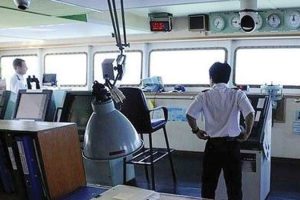Leni draws 220,000 supporters in Arroyo bailiwick

By Kyle Aristophere T. Atienza, Reporter
and Jaspearl Emerald G. Tan
VICE-PRESIDENT Maria Leonor “Leni” G. Robredo on Saturday attracted more than 200,000 supporters — the biggest crowd in her presidential campaign so far — at a rally in Pampanga province north of the Philippines.
The opposition candidate urged her supporters in the province — the bailiwick of former President Gloria Macapagal Arroyo, who has endorsed rival Ferdinand “Bongbong” R. Marcos, Jr. — to step up their house-to-house initiatives to convince more undecided voters to vote for her in the May 9 presidential election.
Ms. Robredo is at a distant No. 2 in most presidential opinion polls, which the son and namesake of the late dictator Ferdinand E. Marcos has dominated.
About 220,000 people joined the campaign rally on Saturday, her office said in a statement at the weekend, citing police data.
“It is very timely for people to educate others and fight fake news,” 27-year-old Dale Jewel Granados, one of those who attended Ms. Robredo’a political sortie, said in a Facebook Messenger chat.
He said he is using social media to campaign for her presidential bet, and had persuaded his family and relatives to vote for the opposition tandem of Ms. Robredo and her vice-presidential running mate, Senator Francis “Kiko” N. Pangilinan.
“The country has never seen anything like the Leni-Kiko campaign and the volunteerism associated with it,” Jean Encinas-Franco, a political science professor from the University of the Philippines, said in a Messenger chat.
“If Leni and Kiko win, this would certainly change the landscape of campaigns in the future,” she said, noting that Ms. Robredo’s supporters have been mostly youngsters.
The opposition tandem, which has criticized President Rodrigo R. Duterte’s stance on the South China Sea dispute, was also welcomed by supporters in Baler in Aurora, another province in Central Luzon.
Before visiting Central Luzon, they joined a campaign rally in Dagupan City in Pangasinan province that drew more than 60,000 supporters.
Pampanga, Aurora and Pangisinan are part of the so-called Solid North, a regional bloc in northern Philippines known for supporting the Marcoses.
“There is momentum on the side of the Robredo-Pangilinan team with their combination of big rallies and smaller townhall discussions and house-to-house campaigns,” Maria Ela L. Atienza, who also teaches political science at UP, said in a Viber message.
“Their lack of centralized campaign resources is compensated by the huge voluntary spirit of many supporters,” she added. “In a way, the campaign is being run not like traditional party campaigning but as a social movement.”
Ms. Atienza said Ms. Robredo should keep the momentum until election day “because of the formidable resources of the frontrunners based on public surveys.” She should continue convincing undecided voters and monitor campaign activities, the actual elections and counting afterward, the analyst said.
“All areas and sectors, whether big or small in terms of voting numbers, count.”
Ms. Atienza said traditional politicians might mobilize their resources, sow disinformation in local campaigns and bribe voters. “Some of these tactics are already being employed by some local politicians. It is important to counter these negative styles of campaigning.”
Ms. Arroyo last week asked allies and influential clans in vote-rich Pampanga to support Mr. Marcos and his running mate Davao City Mayor and presidential daughter Sara Duterte-Carpio.
While local politicians usually focus on their survival, their endorsements energize the campaign of national candidates they support, Ms. Franco said. “This is the impact of synchronized elections.”
Ms. Franco and Ms. Atienza said youth voters are likely to be more critical of local endorsements.
“More voters, not just the youth, are becoming more discerning of the performance and trustworthiness of both local and national politicians,” Ms. Atienza said. “They do not just vote on the basis of regionalism or local loyalties.”
TWO-WAY RACEMr. Granados, the Kapampangan voter, said he is not bothered by Ms. Arroyo’s endorsement of the pro-administration tandem.
“I wasn’t surprised, knowing that most politicians who have a record of corruption are against the Robredo-Pangilinan tandem,” he said. “Everything is black and white for me and my decision is clear.”
Mr. Marcos kept his lead in Pulse Asia Research, Inc.’s presidential opinion poll last month, with 56% of Filipinos likely to vote for him. His rating fell by 4 percentage points.
Still in second place was Vice-President Maria Leonor “Leni” G. Robredo, whose rating rose by nine points to 24%.
Pulse Asia conducted the poll on March 17-21, after the first official presidential debate that Mr. Marcos failed to join.
Ms. Atienza in a separate Viber message said the presidential contest is shaping up to become a two-way race based on the Pulse Asia poll results, where Manila City Mayor Francisco “Isko” M. Domagoso was a far third. He is unlikely to catch up given his few endorsements, she added.
She said Mr. Domagoso’s followers would not automatically vote for Mr. Marcos or Ms. Robredo in case he withdraws from the race.
“Most of Isko’s programs are a bit similar to the current administration and he seems to be presenting himself as a continuity candidate instead of the opposition,” she said.
“Those who seem likely to vote for him may not vote for Vice-President Robredo if he withdraws but they may also not like Bongbong Marcos,” she added, noting that the Manila mayor had been attacking Mr. Marcos more than Ms. Robredo.
“It’s to the benefit of both Marcos and Robredo to have him there because any vote going to Domagoso is at least not to their nemesis,” said Hansley A. Juliano, a former political science professor studying at Nagoya University’s Graduate School of International Development in Japan. “It’s best to consider Domagoso the buffer candidate,” he said in a Facebook Messenger chat.
It would be an insult to voters if Mr. Domagoso quits the presidential race, said Michael Henry Ll. Yusingco, a senior research fellow at the Ateneo de Manila University Policy Center. “Candidates must finish the race because that is their commitment to voters,” he said in an e-mail.
He said the election was “not a done deal,” with half of voters still undecided on whom to vote.




